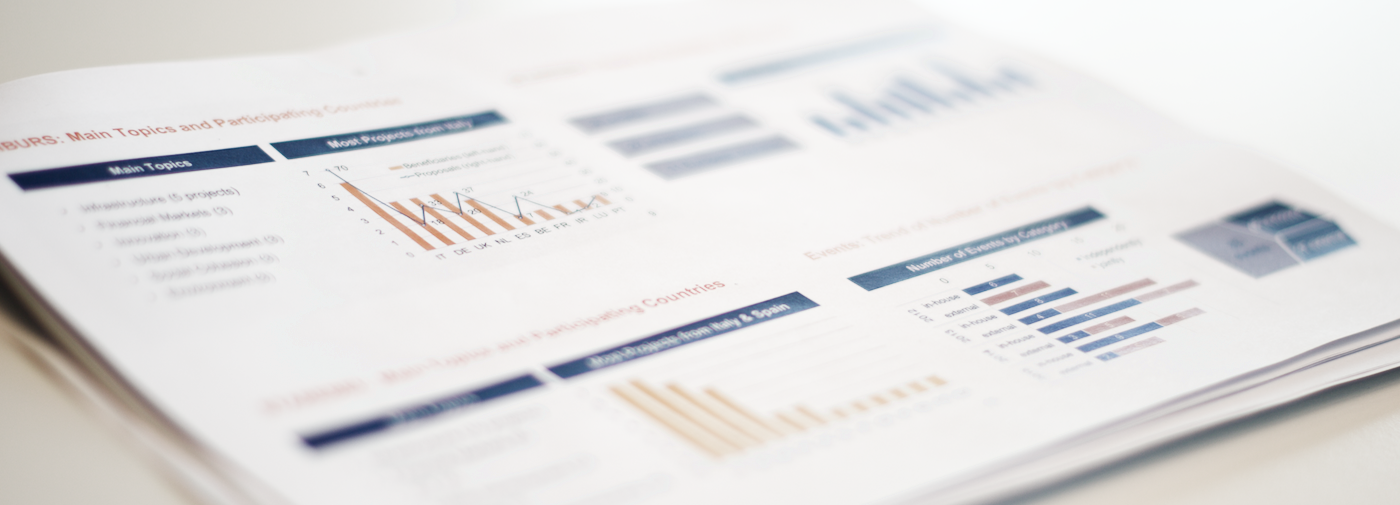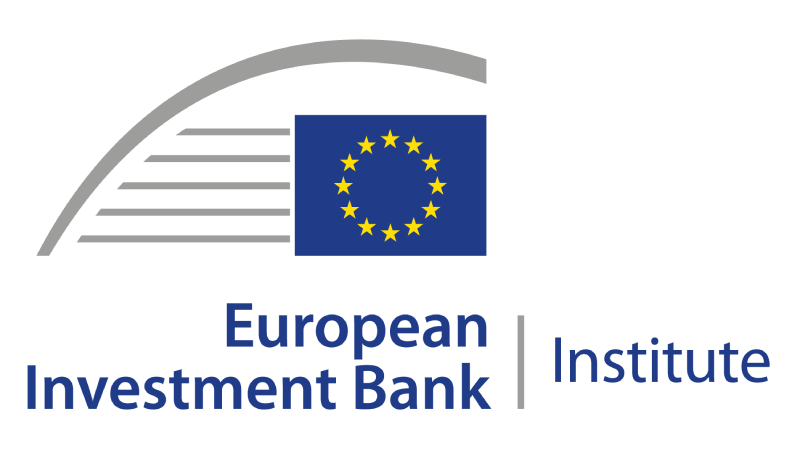
EIBURS
What is an EIBURS?
An EIBURS is a research grant of up to €100 000 a year, for a period of three years. The number of EIBURS grants awarded each year depends on the available budget. Each grant focuses on a different topic defined by the EIB Group.
How to apply?
The topics to be financed by EIBURS are suggested by EIB Group staff and selected by a committee composed of EIB experts. The selection of topics is followed by a public call for proposals posted simultaneously on the EIB Institute’s website and across a number of other channels including in the Official Journal of the European Union.
The call for proposals specifies the topics and the deadline for submission of proposals. Applications must be sent in English by e mail to the Head of the Knowledge Programme Events.EIBInstitute@eib.org. They must be received by the EIB Institute no later than the specified deadline. There is no standard application form for EIBURS. Universities/research centres are free to draft their own application provided that it contains the following:
–letter from the director of the university’s department or research centre expressing an interest in obtaining the EIBURS grant and accepting the conditions of the call for proposals, including the acceptance of the EIB’s final decision (no template)
– research proposal detailing (no template):
- dissemination activities
- potential for cooperation with the EIB
- calendar
- eligible expenses are: 1. general expenses (overheads, academic research team salaries); 2. travel costs (transport, accommodation, conferences fees, meals, allowance); 3. organisation of seminars, conferences, workshops; 4. purchase of books, small IT equipment, subscription to publications/survey tools (template available on request)
- presentation of the university department (faculty, school, institute) or the research centre
- presentation of the research team with CVs
In theory, a good application of three or four pages could suffice. However, considering the strong competition, we expect applications to be more substantial, with sound methodology, and reference literature. The objectives and deliverables should be clear and all steps should be detailed.
Another important factor is the composition of the research team (sound background, including researchers from different relevant areas).
Who is eligible?
Universities or research centres in the European Union are eligible to apply. They need to have proper legal status in order to ensure that a sponsorship contract with the EIB can be signed. Joint proposals are acceptable and encouraged. The university or research centre may propose joint activities with other universities and research centres including from non-eligible countries. In such a case the contract shall be signed with the entity located in the European Union. The EIB will not accept any liability in relation to third parties participating in the research. A joint proposal should reflect the participation of the various partners working on the research.
How does the selection process work?
The selection process takes three to four months. It is a two-step process beginning with an evaluation of the applications by an Experts Committee consisting of EIB Group experts from different departments.
The different aspects evaluated are: the quality of the proposal, the quality of the team, and the impact of the proposed activity on the EIB. When there are several high-quality proposals the shortlisted applicants may be asked to provide additional information. The Experts Committee prepares a recommendation for the Internal Steering Group, which makes the final decision. The Internal Steering Group is composed of senior managers representing the various parts of the EIB Group. Once the grant has been awarded, a negotiation process with the selected university or research centre to specify outputs will precede signature of a contract. The final decision of the Internal Steering Group is irrevocable. All applicants are informed of the final decision.
What are the reporting requirements?
An EIBURS research grant provides up to €100 000 a year, for a period of three years. The continuation of the grant after each one-year period is conditional on the receipt and approval by the EIB of a progress report and a detailed work plan with its budget for the following year(s).
EIBURS is a flexible instrument and as such it may allow changes in the activities proposed during the second and third-year periods. However, the university or research centre must propose such changes at the beginning of these two periods, for approval by the EIB contact person and the EIB Institute.
The university or research centre is expected to provide sufficient information regarding its research activities and administrative matters. Besides the annual reports the university or research centre must send the EIB Institute copies of all documents produced by the research team. The university or research centre is expected to present a progress report of its research activities in a meeting organised at the EIB in Luxembourg (up to two researchers involved in the project).
The university or research centre should include a page on the EIBURS-supported activities on its website. The results of the EIBURS research should be in the public domain and adequately disseminated to produce maximum benefit to the scientific and professional communities. The beneficiary must mention the EIB Institute’s support through EIBURS in any publication, activity, etc. supported by the sponsorship. The sponsorship will conclude after the acceptance of the final report produced by the university or research centre at the end of the three-year sponsorship period. The EIB and the university or research centre will aim to resolve any potential conflicts arising between them amicably, possibly through the appointment by common agreement of a third party that would issue a final verdict.
Ongoing Projects
2022-2025
– The future of schooling: harnessing the potential of digital education technology (The Research Institute for the Evaluation of Public Policies of the Bruno Kessler Foundation)
– The European Cleantech industry, the EU Green Deal and SME equity demand Politecnico di Torino
2021-2023
– Firm competitiveness, growth and digitalisation (Pompeu Fabra University, Barcelona)
2019-2022
– Building the future of inclusive finance: the role of Fintechs and digitalisation (University of Twente, Netherlands).
– Incorporating environmental, social and governance (ESG) criteria in credit analysis and ratings (Ca’ Foscari University of Venice, Italy)
2018-2021
– Improving the measurement of the indirect effects of investment projects: specifying and calibrating EIA methods to maximise compatibility with CBA (University of Las Palmas de Gran Canaria Spain).
– The economic effects of a joint European security and defence policy (University of Bologna, Italy).
2016-2019
– Impact of microfinance on financial and social inclusion in Europe (Università Cattolica del Sacro Cuore, Italy).
